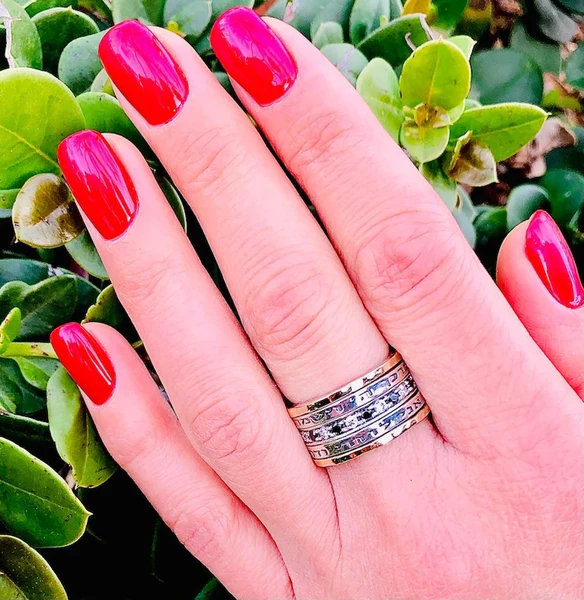How to Choose Jewish Jewelry That Matches Your Style and Values
Choosing a piece of Jewish jewelry is more than a fashion decision—it’s a deeply personal expression of identity, tradition, and often faith. From classic Judaica pendants to modern Hebrew-inscribed rings, these pieces have the power to connect us to something bigger than ourselves: our heritage, our community, and our personal journey. But how do you select a piece that not only looks good, but also feels right? Let’s walk through what really matters when finding Jewish jewelry that reflects both your style and your values.
Know What Speaks to You
Jewish jewelry comes in many symbols and forms, each with its own story and significance. Think about which symbols or themes resonate most with you. For example:
- Star of David (Magen David) – A symbol of unity and divine protection, often worn proudly to represent Jewish identity and solidarity.
- Chai (חי) – Meaning “life” in Hebrew, it’s a reminder to live with purpose and vitality.
- Hamsa – An ancient symbol of protection against the evil eye, popular across Jewish and Middle Eastern cultures for bringing good fortune.
- Shema or Hebrew inscriptions – Verses of prayer (like “Shema Yisrael”) or blessings engraved on jewelry keep words of faith close to your heart (for instance, a ring with the Shema or a pendant with a Hebrew phrase).
Ask yourself: What meaning am I drawn to? Don’t just choose what’s trendy—choose what resonates with your spirit. The symbol that speaks to you will make the piece feel uniquely yours.
Match the Material to Your Lifestyle
Consider the materials and metals that you prefer and that fit your daily life. Do you gravitate toward the warm glow of yellow gold, the sleek shine of sterling silver, or perhaps modern rose gold tones? Maybe you love the earthy authenticity of Jerusalem stone beads or the iridescent shimmer of opals from the Holy Land. Your choice of material can reflect your style: gold for classic elegance, silver for versatile simplicity, etc. But style isn’t just about appearance—it’s also about practicality. If you plan to wear a piece every day, opt for durable materials that can keep up with your life. Sterling silver and 14k gold, for example, offer a good balance of beauty and endurance for daily wear. Pro tip: If you’re gifting Jewish jewelry, consider the recipient’s allergies or sensitivities (for example, nickel-free options for those with metal allergies) and whether they tend to wear subtle pieces or bold statements. Matching the material to lifestyle ensures the jewelry is worn often and comfortably.
Handmade or Machine-Made? (Hint: Values Matter)
Another consideration is how the piece is made, which can be an extension of your values. Some buyers lean toward handcrafted Judaica jewelry, drawn to the story and artistry behind each piece. Handmade items support local artisans, preserve ancient techniques, and often carry more emotional value. They may cost more, but they typically last longer in both quality and meaning. You might cherish the slight imperfections knowing they were made by a human hand with love and skill. On the other hand, choosing machine-made jewelry can have its own merits—such as consistency, affordability, or availability when gifting in quantity. That’s perfectly okay too! Just know what matters to you: is it originality and tradition, or budget and uniformity? Identifying this will help narrow your choices. For example, a cast machine-made pendant might be ideal for bridesmaid gifts, whereas a one-of-a-kind hand-engraved ring might mean more for a personal milestone.
Consider the Occasion
Jewish jewelry often makes a powerful gift, and the context can guide your choice of design:
- Bat/Bar Mitzvah: A meaningful pendant like a Chai or a small mezuzah necklace is perfect to mark this rite of passage, symbolizing the young person’s life (Chai) and commitment to Jewish faith (mezuzah representing Torah and home).
- Weddings: Matching rings for the couple engraved with Hebrew verses (for example, “Ani L’dodi V’dodi Li” – “I am my beloved’s and my beloved is mine”) can serve as both jewelry and lifelong vows they carry with them.
- Memorial or Remembrance: Subtle pieces with Hebrew initials, a Jewish star, or another meaningful symbol can be worn close to the heart in memory of a loved one. A discreet pendant or bracelet that keeps someone’s memory alive is a gentle way to honor and remember.
Of course, maybe you’re buying it for yourself. That’s beautiful too! In that case, think about what chapter of life you’re in or message you need. There’s a piece of Jewish jewelry for every season of life, whether celebratory or solemn.
Support What You Believe In
Today more than ever, consumers want purchases to reflect their values. Consider the provenance of your jewelry: Do you want to support small Israeli businesses or women-owned Jewish studios? Are ethically sourced materials and fair-trade important to you? Perhaps you value eco-friendly practices or supporting artisans in your local community. Every purchase is a vote for the kind of world—and the kind of Jewish community—you want to support. Don’t hesitate to ask where and how a piece was made. For example, buying directly from an Israeli artist’s workshop or a fair-trade Judaica cooperative can make your jewelry feel even more meaningful, knowing it was crafted in line with your principles.
In Closing: Let It Be Personal
There’s no single “right” way to wear Jewish jewelry. Whether your style is minimalist or maximalist, whether you’re religious or more cultural in your identity, whether you want a bold statement necklace or a discreet charm bracelet—choose what feels true to you. The most powerful kind of jewelry isn’t just seen; it’s felt. It resonates with your story. When you select a piece that matches your personal style and your values, you’ll wear it with pride and love, and it will serve as a constant, comforting expression of who you are.

